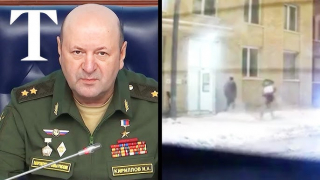Terrorist and Terrorism have no Religion and Country
31.03.2020
It’s been Indian government’s tradition to blame or accuse Pakistan for any terrorist attack in India. Owing to the Islamophobia globally, India has also joined the list of those countries who are blaming Muslims for the unrest and extremist/ terrorist incident in the world. The Hindu fanatics under the leadership of PM Modi of India, are attacking Muslims and vandalizing their properties across the country. These untoward incident are becoming usual thing in India especially since the arrival of PM Modi and his Bhartiya Janta Party (BJP) in the power corridors of India back in 2014. With the increasing anti-Muslim hatred in India, ultra-nationalist are raping women and roaming freely. The BJP-led government is paying no heed to the social disparities across India especially against the minorities, including Muslims, Dalits and other lower caste Hindus.
No community in the world will tolerate such kind of disparities against its people. These disparities are the basic reason for extremism and radicalism in the world. When one community will face injustice and state-sponsored barbarism, chaos and unrest will increase. The current situation in India is the practical demonstration of the economic, social and cultural disparities. Anyhow, that is another thing. Terrorism and terrorist both have not religion, caste and creed. A member of any community such as Muslim, Hindu, Christian and Jews can get radicalized and commit heinous attack against the humanity. In this case, it would be unfair to blame any specific group for the radicalization or terrorism.
I was talking about the Indian accusation of terrorism and extremism. As I said, Indian government never missed a chance to blame Pakistan for harboring and sponsoring terrorists against India. But these are mere accusation. Indian government has failed to present any actionable evidence to Pakistan. On the other side, Pakistani government and armed forces maintained that they are willing to work with India to eradicate terrorism and extremism as these are the common challenges for both countries. But, unfortunately India is not taking these offers seriously and blaming Pakistan instead. Indian government underscored that Pakistan is also facilitating anti-India groups, who are secessionists.
Let’s talk about another aspect of the story. On 25 March 2020, suicide bombers and assailants armed with guns attacked the Sikh Gurdwara Har Rai Sahib in Kabul, Afghanistan. The responsibility of the attack was claimed by the Islamic State Afghanistan (IS). Now the interesting part of the story and attack is that the attacker who executed the attack was an Indian citizen, belongs to Kerala state. As per media reports, the IS claimed Abdul Khayum, also known as Abu Khalid, had carried out the attack to avenge violence against Muslims in India. So where are Indian establishment now? Will they blame Pakistan too this time? What about the atrocities against Muslims across India and Indian Occupied Jammu and Kashmir? So, these are the disparities which compelled people to get radicalized. As the attacker of Kabul attack was Indian, so what should be the punishment for Indian government?
Indian hawkish and nationalist establishment should come up and address the questions regarding its citizen who killed more than 25 people. If it cannot address these questions, then the government should realize that terrorism and extremism cannot be linked to any group or country as there are various reasons behind these attacks. What it can do to stop these heinous attack is to do justice with all communities other than Hindus. The superiority complex of Hindus in India is damaging the Nehruvian concept of Secular India. The government has to act against those Hindu fanatics who are damaging India’s secular face and attacking minorities. The lynching incident must be stopped. Killing of the Muslims in the name of ‘Cow Rakshak’ should also be stopped. The indiscriminately attitude of government against Muslims is likely to compel other communities too, to challenge the writ of state, which may create troubles for the rule of law.
The world should also need to come out from Islamophobia and confess that there is no concept of Islamic terrorism and radicalization. The social and religious disparities against the Muslims must be addressed. There should be some sane voices in the world to defy these claims of Islamophobia. The onus is now in the court of India and international community. They should join hands to mitigate this existed ideology for the sake of global peace. At the end, I would say that Indian government must respect Pakistan’s offer to eliminate terrorism and extremism jointly. Pakistan is facilitator of peace in the region and the practical demonstration of this peace is recently signed historic deal between the Taliban and United States of America. After the signing of this deal, no one can question the Pakistan’s resolve in bringing peace in the region.












